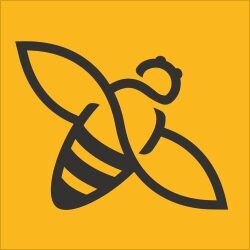
Essential Care Tips for a Healthy Queen Bee Colony
In the intricate and fascinating world of apiculture, the health of a bee colony hinges significantly on the well-being of its queen. As the sole egg-layer and the genetic cornerstone of the hive, the queen bee’s vitality is paramount for the colony’s productivity and longevity. Ensuring a thriving queen and, by extension, a robust colony, requires a comprehensive understanding of their needs and challenges. This article delves into essential care tips focusing on optimal nutrition for the queen bee and her brood, along with effective strategies for managing pests and diseases within the hive. By adhering to these guidelines, beekeepers can foster a healthy environment that supports the queen and her colony’s flourishing.
Optimal Nutrition for Queen Bee and Her Brood
The foundation of a healthy queen bee and her brood lies in providing a balanced and plentiful diet. Pollen is the primary protein source for bees, essential for brood development and the queen’s egg production. Ensuring a diversity of pollen sources can help in meeting the nutritional needs of the colony, promoting a stronger immune system and enhanced vitality. Additionally, nectar provides the carbohydrates needed for energy. During times of scarcity, beekeepers may need to supplement with a high-quality pollen substitute and a sugar syrup solution to maintain colony health.
Feeding practices also play a crucial role in preparing the colony for different seasons. As winter approaches, beekeepers should ensure that the hive has ample stores of honey and pollen to survive the colder months. This involves careful management in the late summer and early fall to assess and supplement food stores as needed. Such proactive measures prevent the colony from experiencing stress due to food shortages, which can significantly impact the queen’s health and her ability to lay eggs in the spring.
Moreover, the provision of clean, fresh water is often overlooked but is vital for a healthy bee colony. Water is not only necessary for cooling the hive on hot days but also for diluting stored honey to feed the brood. Beekeepers should ensure that a clean water source is available near the hive to prevent the bees from venturing too far and risking exposure to pesticides or other contaminants.
Managing Pests and Diseases in the Hive
Pests and diseases can devastate bee colonies, with the queen being particularly vulnerable. Varroa mites are one of the most detrimental pests, capable of transmitting viruses and weakening bee populations. Regular monitoring and timely intervention using approved miticides or organic control methods, such as drone comb removal or powdered sugar dusting, can help manage mite populations and protect the colony’s health.
Brood diseases such as American Foulbrood (AFB) and European Foulbrood (EFB) pose significant threats to the queen’s brood. These diseases can spread rapidly through the colony, leading to weakened or dead larvae. Beekeepers must adopt stringent biosecurity measures, including regular hive inspections, immediate removal and destruction of infected frames, and, if necessary, antibiotic treatments as prescribed by a veterinarian.
Lastly, maintaining a clean and hygienic hive environment is essential for disease prevention. This includes regular inspections to remove dead bees and debris, which can harbor pathogens, and ensuring proper ventilation to prevent moisture buildup that can lead to mold and fungus. Beekeepers should also practice good management by replacing old combs with new ones and using hive tools and equipment dedicated to each hive to prevent cross-contamination.
The health of a queen bee and her colony is a testament to the meticulous care and management practices employed by the beekeeper. By providing optimal nutrition and diligently managing pests and diseases, beekeepers can ensure the longevity and productivity of their hives. These practices not only support the well-being of the queen and her brood but also contribute to the broader ecosystem by promoting the health of these essential pollinators. As we continue to face global challenges in bee health, the role of informed and attentive beekeepers has never been more critical. Through sustained effort and adherence to best practices, we can help secure a thriving future for bee colonies worldwide.
You might be interested in learning more about the importance of honey bees in pollination and ecosystem health. Speaking of bee health, you might be interested in Honey bee. Additionally, understanding the role of queen bees in a colony can provide valuable insights. In relation to queen bees, you might want to explore Queen bee.
